409 12th St SW, Suite 600, Washington, DC 20024
409 12th St SW, Suite 600, Washington, DC 20024
ACNM Government Affairs is voice for CNMs and CMs on Capitol Hill in Washington, D.C. Our team advocates on behalf of the people midwives serve, ACNM members, and the midwifery profession at-large to eliminate health disparities and increase access to evidence-based, quality care. We strive to promote equitable standards for midwifery practice, to eliminate professional barriers, to increase funding for midwifery education, and to enhance the visibility and recognition of the value of midwives and midwifery-led care.
In 2023, ACNM members and staff participated in hundreds of meetings with legislators, Hill staff, and various agencies within the Department of Health and Human Services (HHS) to continue building support for better integration of midwives and midwifery-led care models throughout the care continuum. ACNM continues to brand ACNM and the profession on Capitol Hill and have made great headway in being seen as a valuable resource in the maternal health space to those in charge of legislating, regulating, and influencing healthcare policy in the United States. Our goal is to mainstream midwifery, so we can increase access to midwives and midwifery-led care.
ACNM’s most prominent federal legislative priority is establishing a permanent funding stream (i.e., scholarships for students, money for preceptors, and money for midwifery education start-ups) for accredited midwifery education programs. This will ensure that federal funding is prioritized on an annual basis in the nation’s federal budget for growing and diversifying the midwifery workforce in the United States. As many know, it takes quite a lot of effort to pass a piece of legislation through Congress, that is why ACNM has been laser-focused for the past five years (and subsequently three Congresses) on passing the Midwives for Maximizing Optimal Maternity Services (MOMS) Act. Better integration of the midwifery model of care depends on a robust workforce. The shortage of all types of maternity care providers and of maternity services in rural areas presents an opportunity to re-envision the maternity care workforce by increasing access to all midwives with nationally recognized credentials. Expanding funding to accredited midwifery education programs whose graduates provide high-value care and are educated in fewer years at lower cost than physicians; and whose composition better reflects the diversity of childbearing families will increase access to quality care and improve maternal health outcomes across the United States.
The policy behind the Midwives for MOMS Act is a crucial piece of the maternal health policy puzzle. We have a provider shortage in this country, and we need to increase access to the full spectrum of maternity care providers, including all nationally certified midwifery credentials. The Midwives for MOMS Act (H.R. 3768/S. 1851) addresses the growing maternity care provider shortage, to improve maternity care outcomes for mothers and babies, and to reduce maternity care costs for families and state/ federal governments, by expanding educational opportunities for midwives. The legislation is currently led in the 118th Session of Congress by Representatives Ashley Hinson (R-IA) and Bonnie Watson Coleman (D-NJ) in the House; and by Senators Ben Ray Lujan (D-NM) and Lisa Murkowski (R-AK) in the Senate.
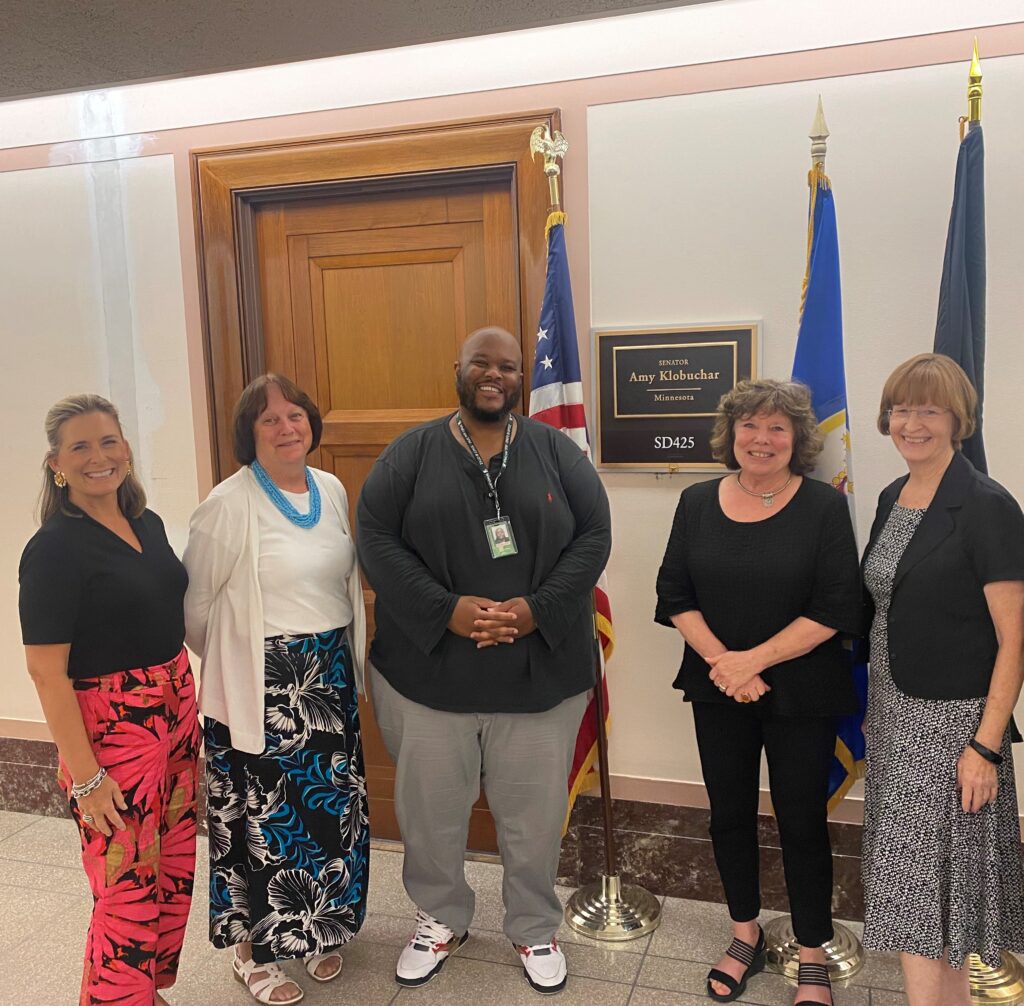
We need to establish a separate funding stream exclusively for midwifery education. The physicians have the Graduate Medical Education program and nursing has several different funding options available for their programs under Title VIII of the Public Health Service Act. Up until this issue became of interest to ACNM and other midwifery stakeholders, there were no funding options available for midwifery programs educating CMs and CPMs and very few opportunities for CNM programs. This country is facing a triple crisis of escalating costs, poor outcomes, and growing provider shortages in its maternity care system and midwives have been widely cited as a major solution to this threefold problem in US maternity care, but currently we are underutilizing midwives in our maternity care system compared to other developed nations. We simply must grow a diverse midwifery workforce and one step to doing so is creating funding opportunities that afford midwifery programs to option to open up more seats in their programs, hire more faculty, reimburse preceptors, and provide scholarships for prospective students.
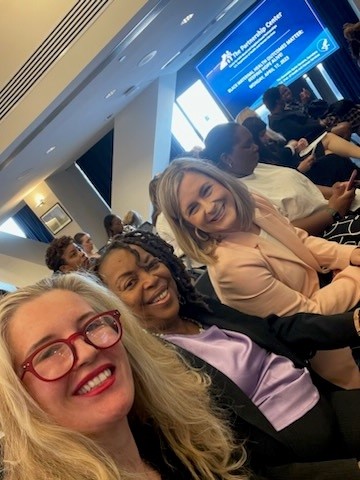
Midwives for MOMS is supported by over 40 national organizations, including the Association of Maternal and Child Health Programs, National Partnership for Women and Families, March for Moms, Every Mother Counts, Maternal Mental Health Leadership Alliance, National Association of Certified Professional Midwives, American Association of Birth Centers, Policy Institute for Community Birth and Midwifery, Postpartum Support International, American Association of Colleges of Nursing, and the American Nurses Association.
The Midwives for MOMS Act will increase the numbers of midwives educated in the US and will support the education of a more culturally diverse maternity care workforce.
The bill will address the significant lack of diversity in the maternity care workforce by:
Because it takes so long to pass legislation in Congress, ACNM and other midwifery advocates have been using the annual appropriations process to establish a precedent for funding of midwifery education. This tactic is viewed as a precursor to our larger efforts of permanently authorizing a grant funding program required to be funded annually by Congress (i.e., Midwives for MOMS). To this end, 2023 was a banner year for securing grant funding for midwifery education. As a result of our dogged lobbying efforts, we were able to secure $13 million in grants exclusively for accredited midwifery education programs that educate all nationally certified midwifery credentials in Congress’ annual appropriations bill for Fiscal Year 2023. Five million dollars was allocated to midwifery education under Title VII of the Public Health Service Act’s Scholarships for Disadvantaged Students (SDS) program. This money was disseminated to the four midwifery education programs who were awarded funding in 2020 for the current five-year SDS funding cycle. The following midwifery education programs have continued to receive money for midwifery scholarships each year of the 5-year grant as a result of ACNM’s lobbying efforts: CSU Fullerton, State University of New York, University of Washington, and Bastyr University. New for 2023, is $8 million for midwifery education under the Health Resources & Services Administration’s (HRSA) Maternity Care Nursing Workforce Expansion Program or “MatCare” program. This program was established within the Advanced Education Nursing Title VIII program exclusively to fund existing and prospective nurse-midwifery students over the course of four years. The purpose of the MatCare Program is to support accredited midwifery education programs to train student nurse-midwives through trainee scholarships, stipends, curriculum enhancement, and community-based training. The program seeks to grow and diversify the maternal and perinatal health workforce through support for education and training in rural and underserved communities. This funding is a result of many years of conversations at the agency level and in Congress about the need to provide access to funding within Title VIII’s Nursing Workforce Development Programs for nurse-midwifery programs separate from other advanced practice nurses. While the President’s budget request included $25 million for nurse-midwifery programs, we were over the moon to receive this unprecedented amount of funding in a divided Congress.
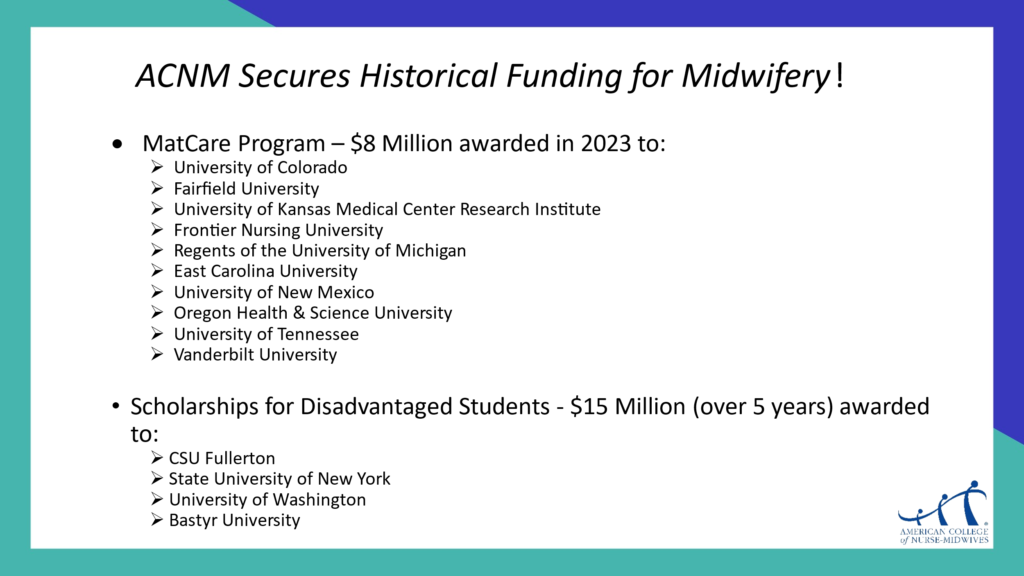
The inclusion of this funding represents a major step toward ACNM’s larger strategic priority of establishing two new permanent federal funding streams under Title VII and Title VIII for accredited midwifery education programs.
Pushing the Boulder Up the Hill
ACNM continues to advocate for legislation to remove the remaining barriers to midwifery care under the Medicare program.
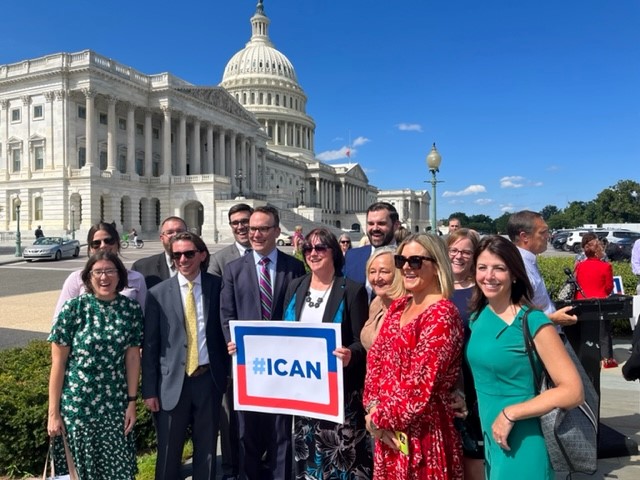
ACNM continues to educate and raise awareness for unfettered admitting and clinical hospital privileges for midwives. While we continue to play the proverbial “long game” with getting this legislation introduced, we spent much of 2023 clarifying final bill language and securing a republican co-lead for the legislation. Representatives Earl Blumenauer (D-OR) and Carol Miller (R-WV) have committed to introducing the legislation in 2024. The Access to Midwifery Care Act:
Introduced in House by Nursing Caucus Chair Reps. Dave Joyce (R-OH), Co-Chair Suzanne Bonamici (D-OR), Lauren Underwood-(D-IL), Earl Blumenauer (D-OR), Glenn Grothman (R-WI), Ann Kuster (D-NH), Jen Kiggans (R-VA), Chris Pappas (D-NH), Jan Schakowsky (D-IL), and Adrian Smith (R-NE) and in the Senate by Senators Jeff Merkley (D-OR) and Cynthia Lummis (R-WY), the Improving Care and Access to Nurses (ICAN) Act (HR 2713, S 2418) ensures that certified nurse-midwives (CNMs) and other APRNs are able to provide comprehensive, coordinated, high-value care within their respective scope to the people and families they serve. Of specific interest to midwives licensed as CNMs are the provisions that:
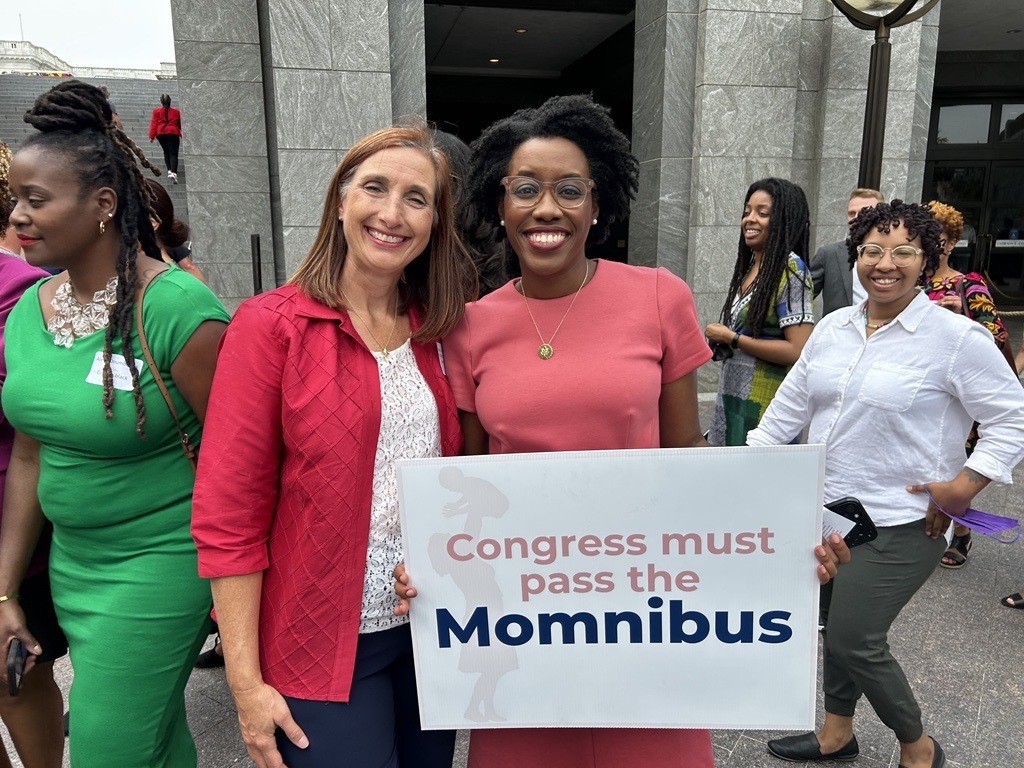
Championed by House Black Maternal Health Caucus co-founders, Representatives Lauren Underwood (D-IL) and Alma Adams (D-NC), and Senator Cory Booker (D-NJ), the Black Maternal Health Act of 2023, (HR 3305, S 1606), includes 13 bills that seeks to address many of the underlying maternal health issues that disproportionately impact Black and Brown communities. ACNM continues to advocacy for the Momnibus and changes within care systems that address disparities, racism, and lack of access to maternal health services.

Lorem ipsum dolor sit amet, consectetur adipiscing elit. Aliquam vitae efficitur metus, ut auctor odio. Morbi quis eros faucibus, porttitor lacus quis, ornare felis. Phasellus tempor augue massa, quis mollis dolor bibendum at. Nunc vel placerat nunc. Mauris egestas, nisi nec accumsan fringilla, diam quam mattis arcu, ac lobortis magna nunc ac massa. Maecenas sollicitudin eros et arcu ultrices, quis varius odio vehicula. Etiam neque diam, feugiat vel placerat non, sodales eget lacus. Sed dictum tincidunt purus, id tempus risus consequat nec.
Morbi a orci tincidunt, rutrum magna eu, consectetur magna. Donec imperdiet placerat ipsum nec finibus. Proin ultrices vestibulum metus, quis condimentum odio malesuada sit amet. Maecenas ac sapien nec ligula commodo viverra. Class aptent taciti sociosqu ad litora torquent per conubia nostra, per inceptos himenaeos. Nam ac dolor arcu. Quisque iaculis porta diam eu ultrices. Vestibulum sit amet venenatis tortor. Donec commodo ex id tempus tempus.
Phasellus molestie vel ex non ornare. Cras dapibus placerat metus, et maximus velit vehicula vel. Phasellus non magna rutrum mauris egestas imperdiet. Morbi dignissim velit sed dolor lacinia, eu commodo metus blandit. Nullam luctus ipsum accumsan magna consequat, tristique imperdiet justo eleifend. Vivamus sagittis leo ante, sed lobortis lectus consequat eget. Nunc a justo et tortor hendrerit tempus vel ut turpis. Sed vel tortor nec felis maximus pretium. Sed vehicula fermentum facilisis. Phasellus dictum dolor quis gravida hendrerit. Suspendisse eu dui augue. Etiam vestibulum mauris vel erat ullamcorper ullamcorper. Etiam ac dignissim tellus. Nulla commodo hendrerit sapien in pellentesque. Cras in felis lacinia, fermentum nisi vel, congue turpis. Sed ultricies massa urna, in tincidunt leo cursus et.
409 12th St SW, Suite 600, Washington, DC 20024